How to Find Your Value and Own It: An Interview with own!t founder Hotori Uemura|Part1
For our 20th article, we interviewed Hotori Uemura (ID23), founder of own!t, a student group that organises flea markets, runs a podcast, and is active on social media. The group name comes from the English phrase, “own it.”
own!t’s activities include selling second-hand clothes at flea markets and talking about mental health and body positivity on social media and on their own podcast. Their activities don’t centre around profit-making, but rather focus on a different kind of gain.
In part 1, Hotori talks about the reason she decided to start holding flea markets, her experiences at a service learning program, and her thoughts on how to get people interested in social issues.
Read the full article to find out!
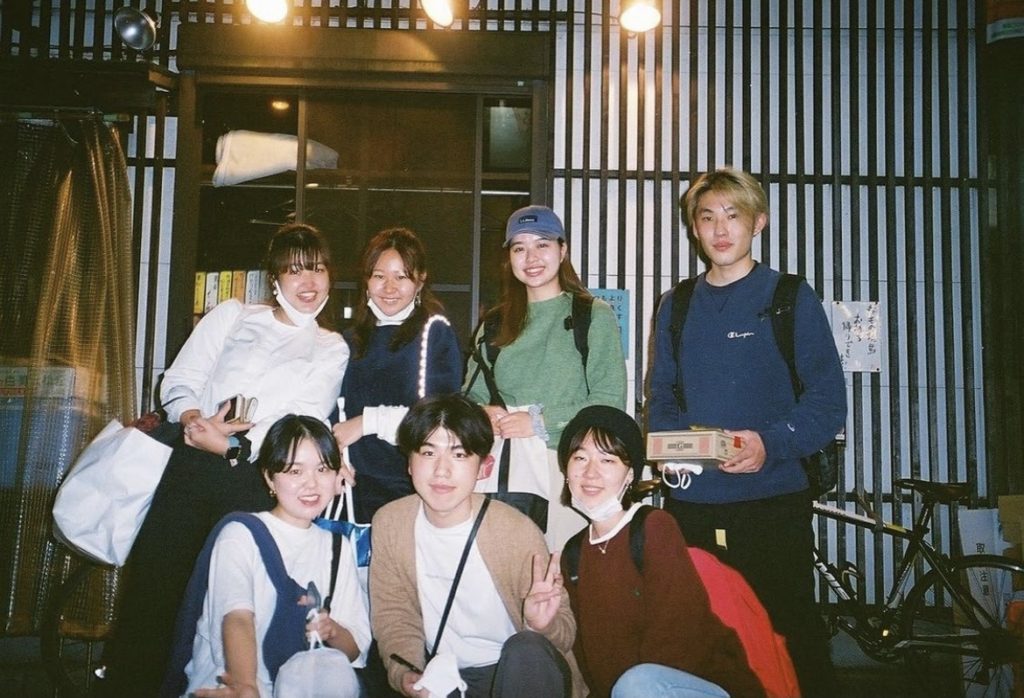
ーー Tell us about what you do.
Our group’s motto is “Someone’s junk might be another’s treasure.”
Aside from organising flea markets, we aim to spread positivity and raise people’s self-esteem using our social media platforms, despite social media’s generally negative image. We do interactive projects with our followers on Instagram, and also record the podcast。
ーー How did you decide on your group name “own!t”?
Our sole intention at first was to hold flea markets, so we initially didn’t have a name. The phrase “own it” means to take pride in oneself and to not feel any shame, which we thought really fit with what we wanted to do, so that’s how we got our name.

ーー Why did you decide to create a group?
Before I visited Kamikatsu-Cho in Tokushima prefecture as part of a service learning program, I often talked with my friends about how university students are always being compared with others and are constantly being pressured to prove their value as human beings. It’s often the most delicate and self-deprecating period of our lives. That’s why I thought it would be nice to be able to have the confidence and courage in oneself to declare our preferences, to say “I like this.” In this sense, I think the way we find new value in second-hand clothing that was once an unused item is quite similar to us university students.
ーー You started your activities in March 2020, when the coronavirus pandemic was just starting to wreak havoc across the world. Why did you decide to found “own!t” during such a tumultuous time?
It was quite a sudden decision. I’d just started to take an interest in environmental issues and sustainability after taking various different classes.
A lot of fashion brands make clothes and shoes from recycled material, which may be a good thing, but when they are releasing new items every other week and throwing away unsold items, using recycled material doesn’t make much of a difference. In fact, it’s a waste of resources. That’s when I came up with the idea of organising our own flea market. I think it was during an Introduction to Christianity class, actually! The current own!t members were also taking the same class, so after having in-depth discussions about why we should organise a flea market, we started getting busy.
Just at that time, however, the government announced a state of emergency, and our plans were disrupted. We still wanted people to get to know us, so we started selling things online by posting pictures of clothes and outfit ideas on Instagram, kind of like Mercari.
Soon we realised that we could rent places to hold pop-up stores, so from Autumn we organised flea markets with our own pocket money plus our earnings.
ーー How did you feel when you first started your activities? Were you nervous or worried?
I didn’t feel nervous or worried at all; I was just excited, really. First of all, I wasn’t alone in founding our group, I had all my friends. Rather than forming an organisation, I want own!t to be a fairly easygoing group, working on things when we have the time. Recently we’re getting DMs from people interested in joining own!t, and since we’re juniors, we’re starting to consider recruiting new student members!
Profit was not something we wanted to gain from our activities from the beginning. There’s more focus on the give-and-take aspect, giving unwanted items away to other people. That’s why our activities have always been pretty laid back.
ーー You mentioned earlier that the way we find new value in second-hand clothing that was once an unused item is quite similar to us university students. What made you think this way?
My friends and I always used to compare ourselves to other students working in student organisations and communities. When comparing, we tend to contrast our ‘bad’ or ‘inferior’ parts to their ‘superior’ parts, rather than focusing on our good qualities.
I want everyone to realise, however, that we are all special and worthy of self-respect. We often fake ourselves and become someone we really aren’t; it’s hard to be true to yourself in such a society. But I believe we all have unique strengths and personalities. You just haven’t found a place to let your qualities shine. There is always a place, or a job, where you can utilize your qualities to their fullest potential. If we can shift our mindset in a positive way and start looking for the right place or the right job, we will see an improvement in self-esteem. This is something own!t members talk about often.
Second-hand clothing exists because of differences in personal values. A piece of clothing that one person doesn’t want anymore may be something another person has always wanted. Similarly, I think we all need the right place to let our unique qualities shine.
ーー own!t’s work ranges widely from organising flea markets to spreading awareness on social media and podcasts. What are some difficulties you’ve faced?
Since I was the one who founded our group, and I’m usually the one coming up with ideas for projects, the other members are sometimes hesitant to voice their ideas and opinions. I always try to make sure everyone has a part to play, so they can feel a sense of responsibility and take voluntary action, but it is quite hard to maintain motivation.
When we organised a flea market in collaboration with organisations from other universities, we encountered a few incidents on the day of the market. Our organisations may be working on similar projects, but our goals and culture differ quite a lot, so it was tough trying to maintain solidarity in the same space.
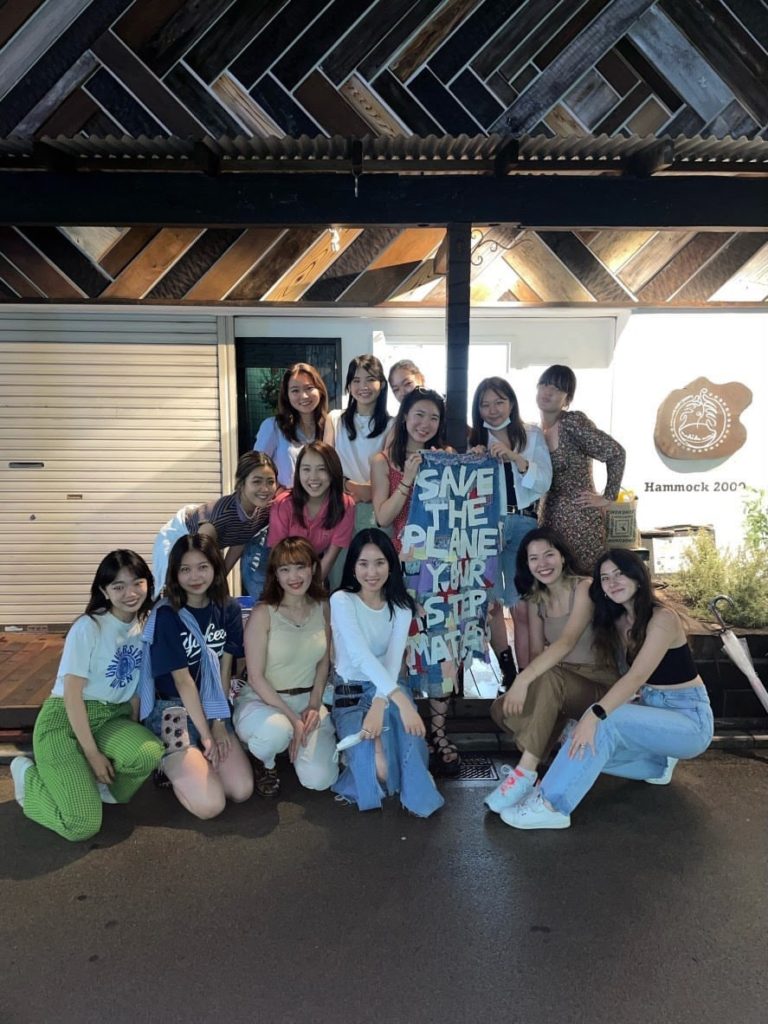
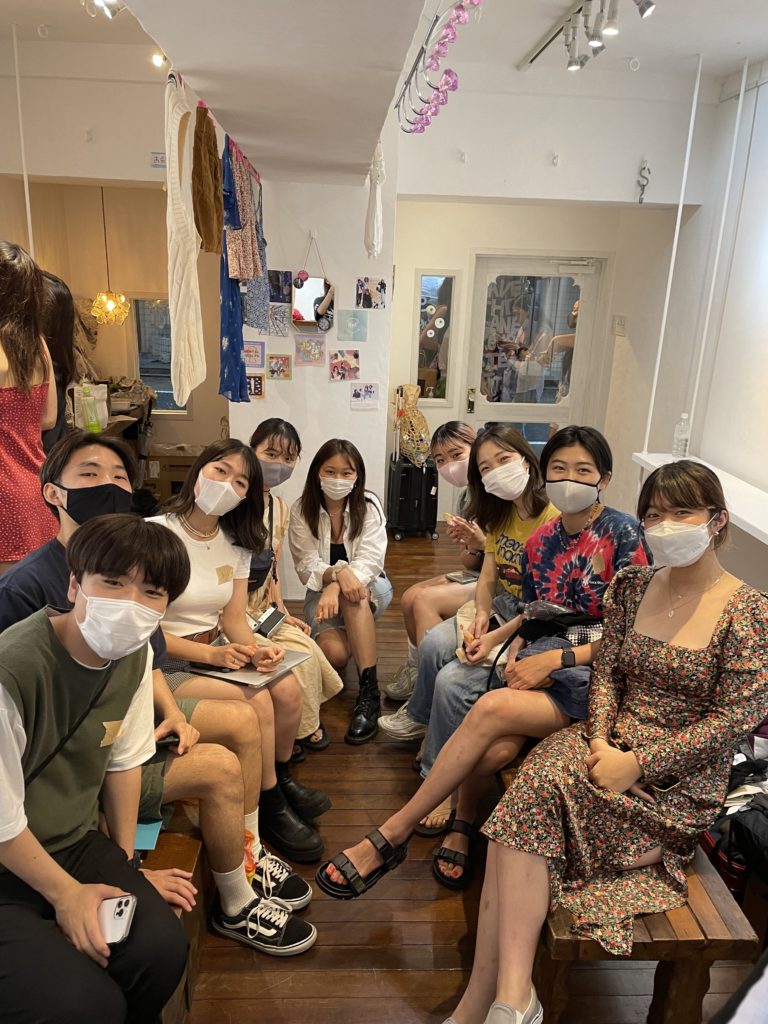
ーー What social issues does own!t focus on?
We were initially focusing only on environmental issues and sustainability. We started holding flea markets because we wanted to breathe new life into unwanted items and give them to people who wanted them, rather than produce new things.
There are so many ‘fair trade’ and ‘sustainable’ products out there, and it’s great that we purchase them for environmental and social reasons. But in order to reach a wider range of consumers, it would be great if a product we wanted or thought was cute just happened to be sustainable or fair trade certified, and our purchase just happened to be a positive contribution to society. I think this should be the norm. That’s why I wanted to create a group that doesn’t seem to focus on social issues at first glance.
ーー Do you think your experiences in the service learning program in Kamikatsu-cho influenced your thoughts on environmental issues and sustainability?
Yes, very much so. The place I visited was called Kamikatsu Zero Waste Center, but in fact the whole town of Kamikatsu was undertaking measures to reduce waste. At the time of my visit, I was thinking of ways to approach people who are not interested in environmental/social issues at all, or have no knowledge on such issues. Seminars and lectures are great for deepening our understanding of issues, but they are often unable to reach out to people who don’t really care in the first place.
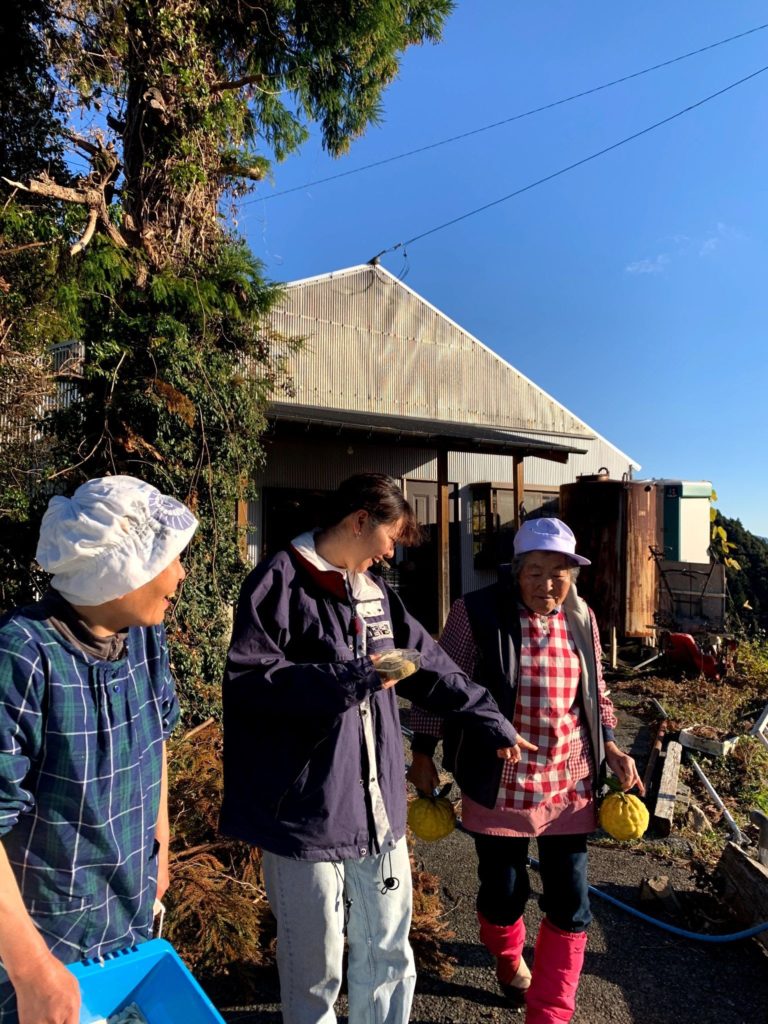
The people of Kamikatsu-cho weren’t always environmentally conscious; they became aware of these issues naturally, because the place they were living in was like that. The town has a very small population, and not a single garbage truck has driven down its streets. The residents all go and dispose of their own garbage at the Zero Waste Center or the Garbage Station. Waste is sorted into 45 different categories, and apparently, separating waste is something the residents have been aware of since birth. Nature is very abundant, and shops usually close around 7pm as well as having regular holidays twice a week. Time flows much more slowly than it does in Tokyo and Osaka, and the people are more laid back.
I learned that our decisions and values are closely linked to the environment we live in, and that it’s important to live without putting too much pressure on ourselves. I tend to fill up my schedule, and can only sleep when I’ve accomplished everything. But with a little bit of ease in life, I can be more mindful of my friends and social issues, and reconsider the environment surrounding me and other people.
I used to blame widespread apathy on the people themselves, but I’ve come to realise after visiting Kamikatsu-Cho that the problem lies with the society we live in, a society that leaves no room for us to think of anything other than ourselves. I want to live with ease from now on, and I hope more people will be able to do the same.
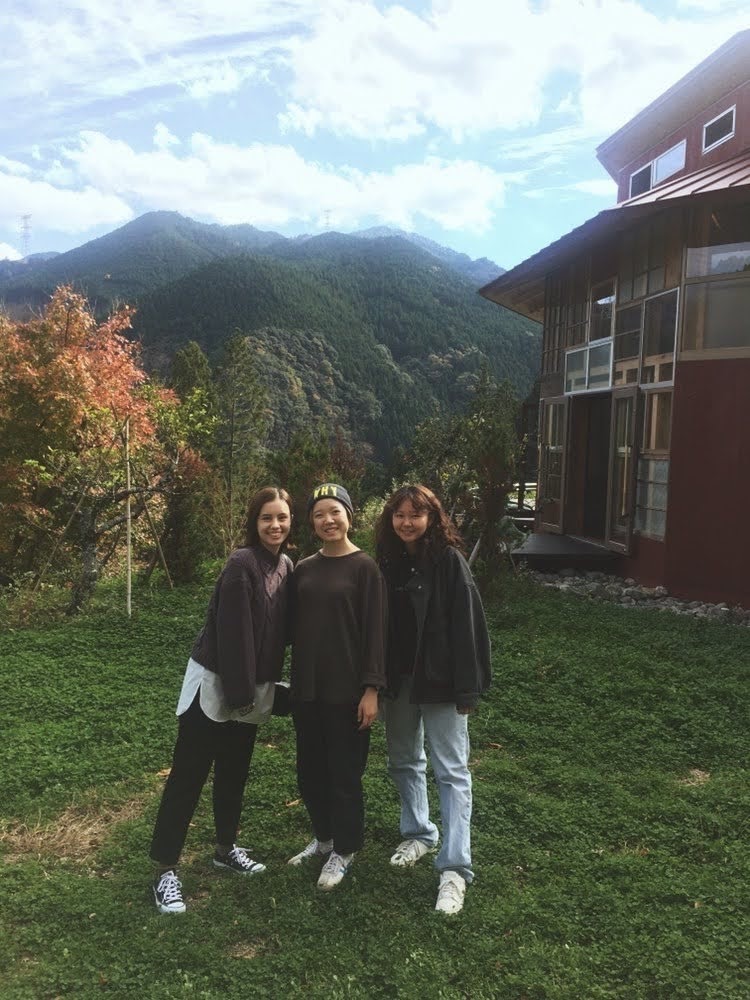
We hope you enjoyed part 1! In part 2, Hotori will talk about how she balances activism and school work/part-time work, what prompted her to study abroad in Australia in high school, and her experiences during the study abroad. Stay tuned!
own!t SNS
Instagram: @ownit_icu
Podcast: chill with own!t